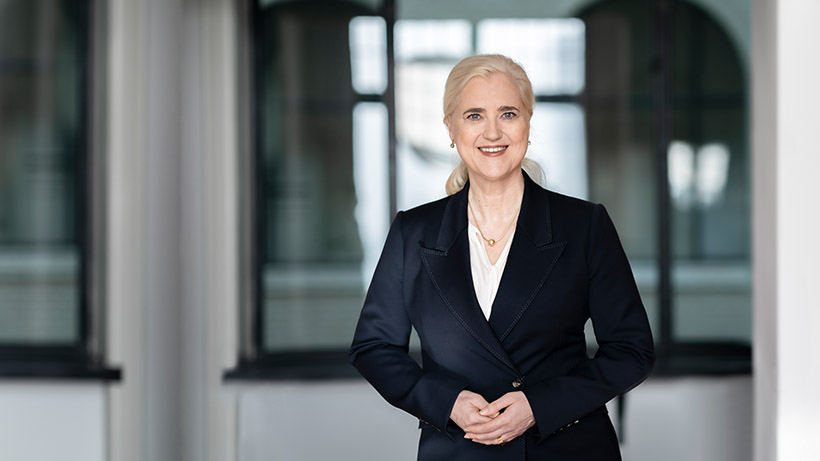Letter to the shareholders

Angela TitzrathChairwoman
of the Executive Board
Ladies and gentlemen,
When a container ship became stuck in the Suez Canal in March, preventing hundreds of other ships from passing through, the consequences of a blockage in one of the world’s busiest shipping lanes were brought into sharp relief. The incident demonstrated once again just how closely intertwined our global supply chains are. Any disruption to transport flows can lead to significant delays and jeopardise the supply of goods to consumers and companies.
Our facilities in the ports of Hamburg, Odessa, Tallinn and Trieste, as well as the terminals of our rail subsidiary METRANS in the European hinterland, are part of a network that transports essential goods and supplies every single day. We are acutely aware of this special responsibility. This is why we continue to insist on strict adherence to hygiene and social distancing regulations throughout the Group in order to prevent coronavirus infections. In this way, we ensure that our operational stability is maintained at all times.
Our customers at the quayside and in the hinterland can count on us to handle their goods and supplies safely and reliably.
We too have felt the effects of delays to operations at other ports since the start of the year. Hardly any of the ships currently arriving at our quays are on time. Schedules are not being adhered to, resulting in containers being left where they are not needed or missing where they are needed. These late arrivals result from delayed processing at European ports, where coronavirus infections have led to a shortage of staff. The adjustments necessitated by Brexit at the start of the year have also left their mark. The blocking of the Suez Canal over several days further exacerbated the situation. At one point, 390 ships were waiting at the north and south entry points to the canal. While teams were still attempting to free the grounded vessel, it was forecast that the Port of Hamburg would face a stern challenge as soon as the canal was re-opened. I can assure you that we will master this challenge together! Our customers at the quayside and in the hinterland can count on us to handle and transport their goods safely and reliably, while doing everything we can to help reduce the delays already caused.
One prerequisite for this is the mutual trust and close coordination of all involved – the port operators, shipping companies, forwarders and shippers. HHLA was quick to adapt to the emerging challenges. By activating additional space near our terminals, we facilitated the storage of thousands of extra containers. Once again, HHLA demonstrated its flexibility and consistent ability to ensure the reliable flow of goods. Our employees deserve special praise for enabling this.
In the first three months of the 2021 financial year, HHLA continued to successfully navigate the ongoing crisis. Although container throughput volumes in the first quarter were down on the previous year – primarily due to the loss of a Far East service in mid-May 2020 – container transport volumes made good progress. This also applies to key financial indicators, such as revenue, EBIT and the EBIT margin. The multi-function terminal in Trieste that we acquired last year was put into operation. In my introduction, I mentioned the consequences of disruptions to supply chains. It is not only bad weather, the coronavirus pandemic or shipping accidents that can have a negative impact, but also political conflicts. As the operator of a terminal in the port of Odessa, we are concerned about the ongoing developments in Ukraine. Peace, stability and security are just as important for the proper functioning of global transport flows in our interconnected world as unrestricted passage through the Suez Canal.
Yours,

Angela Titzrath
Chairwoman of the Executive Board